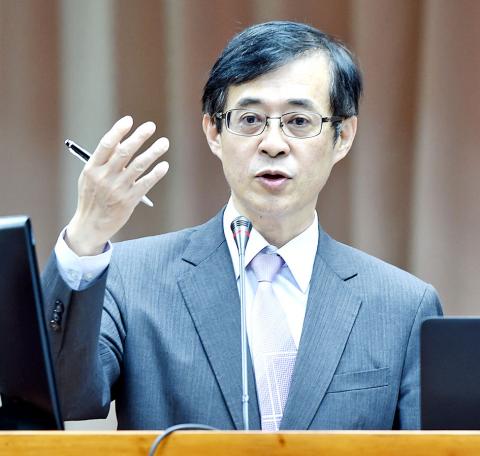The Ministry of Education (MOE) has budgeted NT$1.58 billion (US$50.97 million) for personnel training next year as part of its response to the government’s New Southbound Policy.
It also plans to spend NT$450 million on student recruitment and subsidies to increase the number of students from ASEAN and India, and to help Taiwanese students enter internships and research programs there.
Its long-term plans include subsidizing up to 10,000 students studying abroad by 2021 to increase the international competitiveness of Taiwanese students, the ministry said.

The number of foreign students at the nation’s higher education institutions hit a record 117,970 last year, ministry data showed.
Deputy Minister of Education Yao Leeh-ter (姚立德) on Sunday said the ministry hoped to raise that number and was targeting a 20 percent annual increase in the number of students from ASEAN and India.
There are 41,000 students from ASEAN and India this year, and the ministry aims to increase that number to 50,000, he said.
The ministry also aims to send 5,000 Taiwanese students abroad next year, of whom 2,500 would take on internships and research projects in India and Southeast Asia, Yao said.
The ministry aims to increase the number of Taiwanese students in the region to 5,000 by 2021 — half of the total 10,000 it aims to send abroad by then — Yao added.
In another bid to boost ties with the region, the ministry would send 100 Mandarin teachers to Southeast Asia and India, Yao said, adding that they would also teach Taiwanese culture.
Meanwhile, the ministry would recruit 100 Southeast Asian and Indian instructors for doctoral studies in Taiwan, he said.
Wuu Dong-sing (武東星), a professor at National Chung Hsing University’s materials science and engineering department, said that ASEAN and India are indispensable markets for industrial growth and development.
Students who seek development opportunities in those countries would have an advantage when seeking jobs at Taiwanese and international companies that operate in the region, he said.
The ministry in June announced that starting next fall, Southeast Asian languages would be offered as electives in junior-high schools in a bid to improve cross-cultural understanding.
Students would be able to take Vietnamese, Indonesian, Thai, Burmese, Cambodian, Bahasa Malaysia or Filipino courses, the ministry said.

The Ministry of the Interior (MOI) is to tighten rules for candidates running for public office, requiring them to declare that they do not hold a Chinese household registration or passport, and that they possess no other foreign citizenship. The requirement was set out in a draft amendment to the Enforcement Rules of the Public Officials Election and Recall Act (公職人員選舉罷免法 ) released by the ministry on Thursday. Under the proposal, candidates would need to make the declaration when submitting their registration forms, which would be published in the official election bulletin. The move follows the removal of several elected officials who were

The Republic of China (ROC) is celebrating its 114th Double Ten National Day today, featuring military parades and a variety of performances and speeches in front of the Presidential Office in Taipei. The Taiwan Taiko Association opened the celebrations with a 100-drummer performance, including young percussionists. As per tradition, an air force Mirage 2000 fighter jet flew over the Presidential Office as a part of the performance. The Honor Guards of the ROC and its marching band also heralded in a military parade. Students from Taichung's Shin Min High School then followed with a colorful performance using floral imagery to represent Taiwan's alternate name

FOUR DESIGNATED AREAS: Notices were issued for live-fire exercises in waters south and northwest of Penghu, northeast of Keelung and west of Kaohsiung, they said The military is planning three major annual exercises across the army, navy and air force this month, with the navy’s “Hai Chiang” (海強, “Sea Strong”) drills running from today through Thursday, the Ministry of National Defense said yesterday. The Hai Chiang exercise, which is to take place in waters surrounding Taiwan, would feature P-3C Orion maritime patrol aircraft and S-70C anti-submarine helicopters, the ministry said, adding that the drills aim to bolster the nation’s offshore defensive capabilities. China has intensified military and psychological pressure against Taiwan, repeatedly sending warplanes and vessels into areas near the nation’s air defense identification zone and across

A Chinese takeover of Taiwan would severely threaten the national security of the US, Japan, the Philippines and other nations, while global economic losses could reach US$10 trillion, National Security Council Deputy Secretary-General Lin Fei-fan (林飛帆) wrote in an article published yesterday in Foreign Affairs. “The future of Taiwan is not merely a regional concern; it is a test of whether the international order can withstand the pressure of authoritarian expansionism,” Lin wrote in the article titled “Taiwan’s Plan for Peace Through Strength — How Investments in Resilience Can Deter Beijing.” Chinese President Xi Jinping’s (習近平) intent to take Taiwan by force